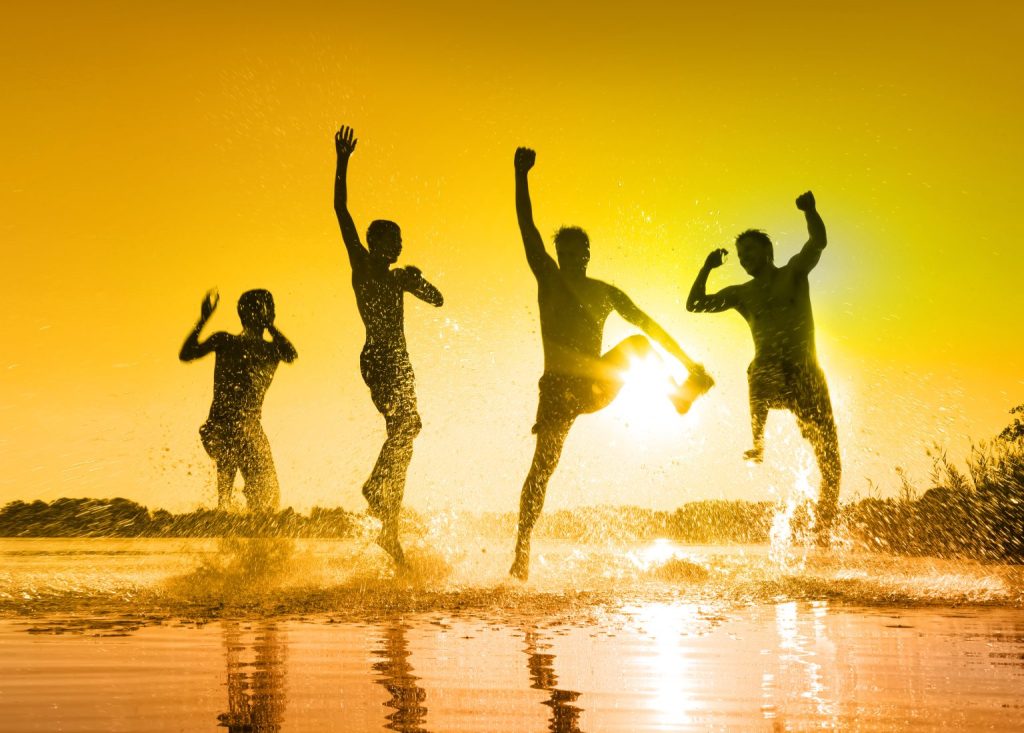Summer Safety Tips: From Hydration to Sun Protection
In recognition of June’s Summer Safety Month, we’re looking at how to stay safe and healthy during the summer months. From heat-related illnesses to accidents at home or the workplace, understanding these risks can help reduce the number of injuries and even fatalities. Colby Shinkle, a PA-C at Hunter Health, said, ” Summer increases the risk of various health and safety concerns. It’s important for everyone to be aware and prepared to ensure a fun and safe summer.”
To stay safe in the summer, it’s important to stay hydrated. According to Shinkle, it’s crucial to hydrate before any outdoor activity. A simple rule to follow is to drink half your body weight in ounces of water every day. Dehydration is a major safety concern during the summer months, and our bodies can lose a lot of water through perspiration when it gets hot out. If you’re drinking alcohol while outside, it’s especially important to intake alcohol as well.
Sun protection is another crucial aspect of summer safety. Shinkle recommends a “daily use of broad-spectrum sunscreens with a minimum SPF of 30 on all exposed skin but especially the face, neck, and shoulders.” It’s important to reapply sunscreen every two hours or after swimming or sweating and limit sun exposure during the peak intensity hours – between 10 a.m. and 4 p.m.
Managing Heat-Related Illnesses: From Prevention to Recovery
Despite taking all necessary precautions, heat-related illnesses can still occur. They range from heat cramps – muscle spasms usually affecting the legs or abdominals – to heat exhaustion and heat stroke, which can be serious and require immediate medical attention. Shinkle recommends several measures to prevent heat injury, including taking breaks during exercise, drinking enough fluids, exercising early in the day before it gets too hot, wearing loose, lightweight clothes, and avoiding being in a hot car.
In case of heat-related illnesses, it’s important to cool your body down. This can be achieved by moving into the shade, going into an air-conditioned building or car, taking a cool shower or bath, drinking water or a sports drink, taking off any extra clothing, and putting a cold pack or cool cloth on your neck, armpits, and groin.
Get a sunburn? Try this!
If you do end up with a sunburn, aloe vera can be a comforting partner in making your sunburn less painful. According to Shinkle, “Aloe vera has anti-inflammatory, antioxidant, and skin-protective qualities, which is why it is often suggested for sunburn.” You can gently apply a layer of aloe vera gel on the affected area throughout the day, and keeping it chilled can add a more soothing, cooling effect.
But remember, the best “treatment” for sunburn is prevention. Use sunscreen with at least 30 SPF for daily use and 50 SPF or greater for heavy sun exposure, and reapply every two hours. If you get sunburned, additional ways to minimize discomfort include taking cool showers, drinking lots of water, wearing loose-fitting clothing, and avoiding further intense sun exposure. Following these tips will help you have a happy, healthy summer! And if you suffer from any non-severe heat-related illnesses, don’t hesitate to contact Hunter Health by calling 316-262-2415.


